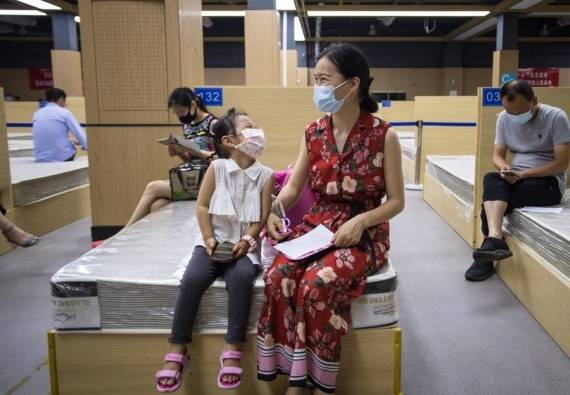Citing Internet 2.0, the publication said that the data has been collected and analysed from a website that aggregates information on public procurement bids in China….reports Asian Lite News
The purchases of PCR (Polymerase chain reaction) tests in China’s Hubei province surged months before the first official reports of COVID-19 case there, according to a report by Australia-based cybersecurity company Internet 2.0.
Nikkei Asia reported that about 67.4 million yuan (10.5 million dollars at current rates) was spent on PCR tests in Hubei during 2019, nearly double the 2018 total, with the upswing starting in May, as per the report.
Citing Internet 2.0, the publication said that the data has been collected and analysed from a website that aggregates information on public procurement bids in China.
The analysis team consists of former officials from intelligence agencies in the US, the UK, Australia, and other countries, as per Nikkie Asia.
Orders of the PCR tests doubled from universities, jumped fivefold from the Chinese Center for Disease Control and Prevention and surged tenfold from animal testing bureaus. Purchases from hospitals declined by more than 10 per cent.
According to the publication, monthly procurement data shows a spike in orders in May, especially from CDC buyers and the People’s Liberation Army.
“We believe the increased spending in May suggests this as the earliest start date for possible infection,” the report said.
Purchases rose sharply from July through October as well, in particular from the Wuhan University of Science and Technology. The institution spent 8.92 million yuan on PCR tests in 2019, about eight times its total for the previous year.
The university, along with local hospitals and public health authorities, plays a direct role in responding to outbreaks of new diseases, according to the report.
The involvement of these groups provides evidence that “the increase of purchasing was most likely linked to the emergence of COVID-19 in Hubei Province in 2019,” the report said. “We assess with high confidence that the pandemic began much earlier than China informed the (World Health Organization) about COVID-19.” Nikkei Asia further reported.
According to US media, the WHO is looking to revive an investigation into the origins of the COVID-19 virus by assembling a team of 20 scientists to hunt for new evidence against China.
According to the Wall Street Journal report, the new probe comes following an initial WHO inquiry found that that the data provided by Chinese scientists was insufficient to answer key questions about the virus’ origin. (ANI)













